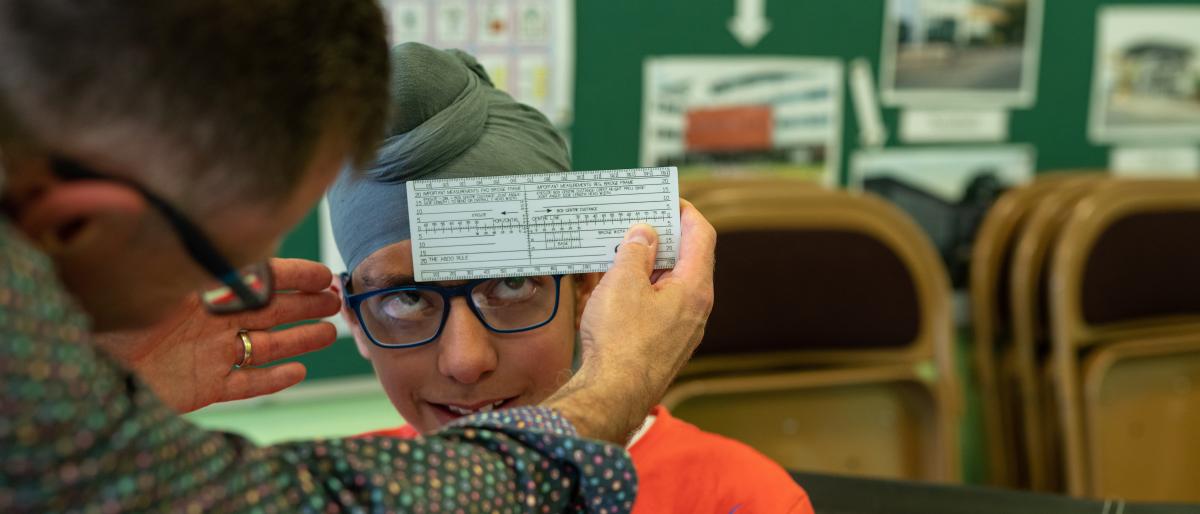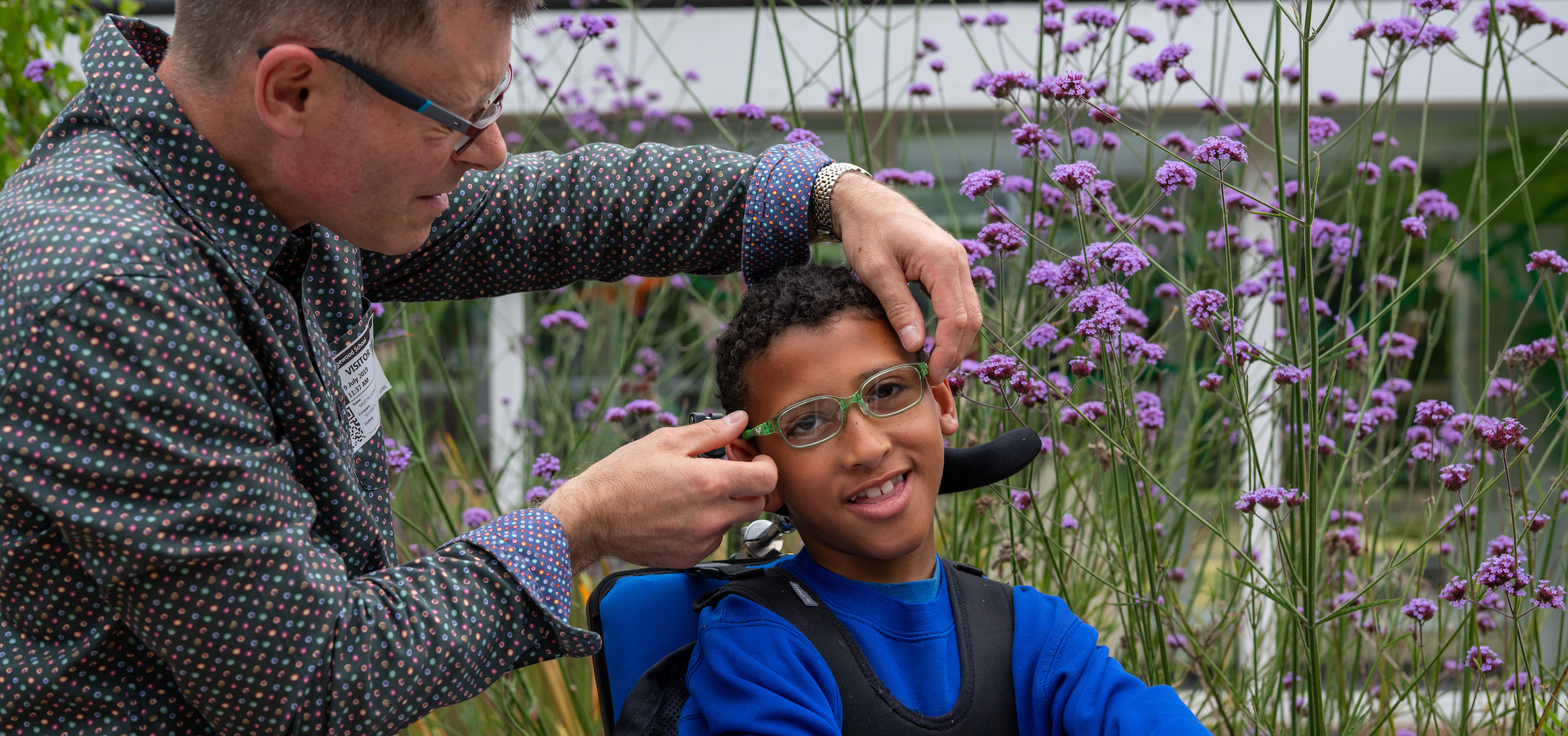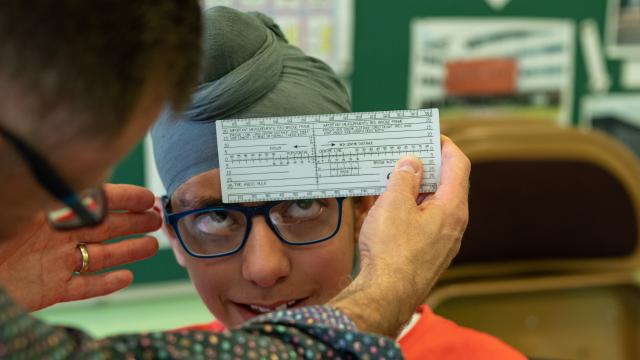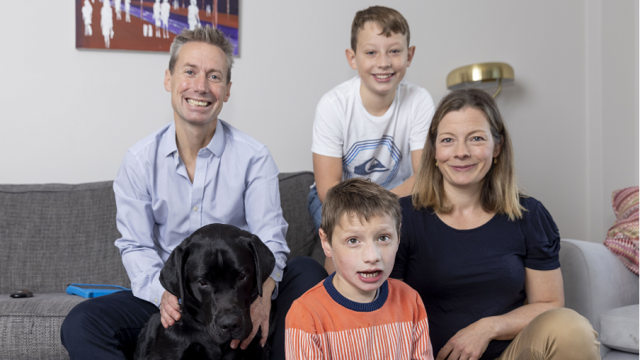
Why special schools eye care needs dispensing opticians
Association of British Dispensing Opticians Clinical Lead, dispensing optician Max Halford writes about what a multidisciplinary clinical team really brings to eyecare for special school students.
“One of the most enjoyable parts of my role as the Clinical Lead for ABDO is engaging with clinicians who have a passion for delivering the best possible eye care for their patients. They talk about the difference they have made to the lives of the people they care for, how this has impacted on these patients, and the huge satisfaction they obtain from using their skills to make a difference.
Nowhere is this more evident than with the clinicians who make up the Eyecare Teams that serve the needs of special school pupils.
Dispensing Opticians are the experts in eyewear, our core role is to advise on, fit and supply the most appropriate spectacle frames and lenses individualised for each patient. Within the special school service, dispensing opticians work alongside their optometrist and orthoptist colleagues to ensure that every child has a prescription that maximises their visual potential and this is translated into a pair of spectacles that fit comfortably, stay in place, and optimally meet that patient’s visual needs.
This can only be achieved by utilizing all the core skills of a dispensing optician, bringing together visual task analysis, spectacle prescription analysis, facial measurements, frame measurement and modifications, timely repairs, ongoing adjustments and most importantly communication skills.

Back in 2017, ABDO was part of an expert working group which developed the ‘one stop shop’ model of eye care published in the Framework for Special Schools Eye Care which was subsequently recommended as a model of care for all special schools pupils by Public Health England. This model was taken forward by an NHS England subject expert working group including ABDO, which developed the service specification for the NHS England proof of concept special school eye care service.
The model includes the provision of spectacles, when needed, support to wear them and timely repairs and replacements. The proof of concept model provided a spare pair to every child, a group who are much more likely than the general population to lose or break their glasses as well as to have higher prescriptions. These factors make both initially getting used to glasses, and managing without them once that’s the case, a frequent challenge.
To back up all these skills ABDO delivered specialised training to those involved in the service to ensure their knowledge was up to date including a practical day that certainly involved a dusting off of a few facial gauges and frame rules!
However, these key skills don’t work in isolation; they build on the work of the prescribing optometrist and interventions of orthoptists, and this has been shown to date in the success of this specialist service.
The “proof of concept” model that NHS England commissioned, allowed all of the clinicians to work together, truly as a multidisciplinary team, often in challenging environments away from the support of their wider practice colleagues, to deliver a service that from day one was life changing for many children, nearly half of whom had never been able to access High Street optician practices.
Feedback from patients, their parents and carers, school staff and other health professionals has been hugely positive - in my view truly an example of where the NHS invested money wisely and got it right for a group of people who were clearly being ill served by existing services that many could not access.
Feedback gained as part of the consultation process at the end of the proof of concept is unambiguous - this model of care; delivered in the school environment where the patients are most receptive, by highly skilled optical professionals, works.
So why are we still waiting to hear of the outcome of proposed changes? Why indeed would you want to change the nature of the service to move it more to a standardised High St model of care that we know these children often won't or cannot access?
The proposed “new” service may well look very different - the suggestion that a dispensing optician would not be mandated as part of the eyecare team has been proposed. Therefore, we may well lose the specialist dispensing input so vital in ensuring that patients actually get spectacles that work for them.
We are very concerned that the proposals for the national model do not ensure the vital specialist support with spectacles that this population of children needs to ensure they wear spectacles successfully and achieve their visual potential. The support that a dispensing optician provides.
Funding, the age old barrier to quality, is in jeopardy, as different fee structures are proposed which many who are actually delivering the service at the moment say will not allow specialist frame and lens choices to be dispensed without parental payments; creating the exact inequality that the existing service has worked so hard to avoid.
I will finish my blog where I started, talking about amazing people doing amazing things for a group of patients who deserve amazing vision- I hope that these people and the patients they care for, will continue to be well served by a Special School Eye Service which builds upon the best aspects of the existing service and of course, would never consider dispensing with the services of a dispensing optician.



